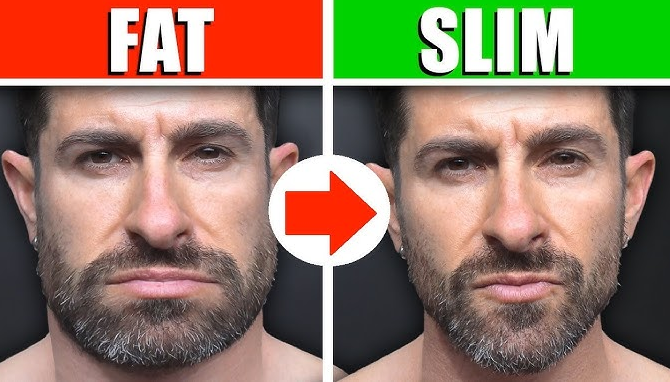Introduction
Have you ever wondered if your head actually gets smaller when you lose weight? It’s a common question for many people working on their fitness journey. While we often see changes in our bodies, understanding what really happens to your head during weight loss is important. In this guide, you will learn how weight loss affects your head size, what parts of your head change, and what stays the same. Let’s explore this topic in a clear, supportive way that answers your biggest questions.
What Happens to Your Body When You Lose Weight
Before diving into the head size question, it’s good to understand how weight loss affects the body overall. When you lose weight, your body burns fat stored in various places, such as your belly, arms, and face. This process leads to noticeable changes in your body shape and size.
Your face often shows the first signs of weight loss. Cheeks become less puffy, and jawlines appear sharper. But does this mean your head gets smaller too? Let’s find out.
Does Your Head Get Smaller When You Lose Weight
The short answer is no — your skull size does not shrink when you lose weight. Your head’s bones remain the same size throughout your life once fully grown, so the actual head size stays constant. What changes, however, is the fat and soft tissue around your face and scalp.
Losing weight reduces fat deposits in your face, making your head appear slimmer or more defined, but the bone structure itself doesn’t shrink. So, while your head might look smaller or less round, the actual size of your head stays the same.
How Weight Loss Affects Your Face and Head Shape
When you lose weight, you reduce subcutaneous fat — the fat beneath your skin — which is present in your face. This reduction can affect areas like:
-
Cheeks
-
Jawline
-
Neck
-
Chin
As fat decreases, your facial features become more visible and defined. This change can give the illusion that your head has gotten smaller, but it’s really about the reduction in fat volume.
Why Some People Think Their Head Gets Smaller
Sometimes, people notice that their hats or glasses feel looser after losing weight. This can be confusing but is explained by changes in the soft tissues of the head. The scalp and face may lose some fat, reducing circumference slightly, but this difference is small and temporary. It does not affect the skull or actual bone size.
Can Weight Loss Change Your Brain Size?
Weight loss does not reduce the size of your brain. Brain volume remains stable regardless of fat loss. The brain is protected by the skull and cerebrospinal fluid and is not affected by fat loss or gain. Maintaining a healthy diet and lifestyle helps support brain health but does not change its size.
Factors That Influence How Your Head Looks During Weight Loss
Your head’s appearance during weight loss depends on:
-
Genetics: Bone structure and fat distribution differ by person
-
Age: Skin elasticity changes with age, affecting how your face looks after fat loss
-
Hydration: Staying hydrated helps maintain skin tone and firmness
-
Muscle tone: Exercises targeting your neck and face may improve appearance
All these factors contribute to whether your head looks slimmer, but none affect actual head size.
How to Support Healthy Weight Loss for a Slimmer Face and Head Appearance
If you want to see a slimmer face and head shape while losing weight, try the following tips:
-
Maintain a balanced diet rich in fruits, vegetables, and lean proteins
-
Stay hydrated by drinking enough water daily
-
Get regular exercise, including cardio and strength training
-
Practice facial exercises or massage to improve muscle tone
-
Avoid rapid or extreme weight loss, which can affect skin elasticity
These habits help reduce fat healthily and keep your skin firm and youthful.
Common Myths About Head Size and Weight Loss
-
Myth 1: Losing weight shrinks your skull — False, skull size stays the same.
-
Myth 2: Fat loss in the head is dangerous — False, losing facial fat is safe and normal.
-
Myth 3: Your brain size shrinks with weight loss — False, brain volume remains stable.
Understanding these facts can prevent unnecessary worries during your weight loss journey.
Conclusion
Does your head get smaller when you lose weight? The bone structure of your head does not change size, but losing fat in your face and scalp can make your head appear slimmer. Changes in soft tissue and fat volume alter how your head looks but not its actual size. Maintaining healthy weight loss habits supports a leaner face and a youthful appearance. Remember, your head’s size is mostly determined by your skull, which remains constant no matter your weight.
FAQ Section
1. Can fat loss in my face cause my head to feel lighter?
Fat loss reduces volume but not weight significantly. Any change in feeling is minor and mostly about perception.
2. Does losing weight change the shape of my skull?
No, your skull shape remains unchanged throughout your life.
3. Why do my hats feel looser after weight loss?
Loss of fat and slight decrease in scalp circumference can make hats feel looser.
4. Will facial exercises make my head smaller?
Facial exercises improve muscle tone but do not change bone size.
5. Can dehydration make my face look smaller?
Yes, dehydration reduces facial puffiness temporarily.
6. Does rapid weight loss affect my facial skin?
Rapid loss can cause loose skin due to decreased elasticity.
7. Is it safe to lose fat from the face?
Yes, facial fat loss is normal with overall weight loss.
8. Does brain size change with weight loss?
No, brain volume stays consistent regardless of weight changes.
